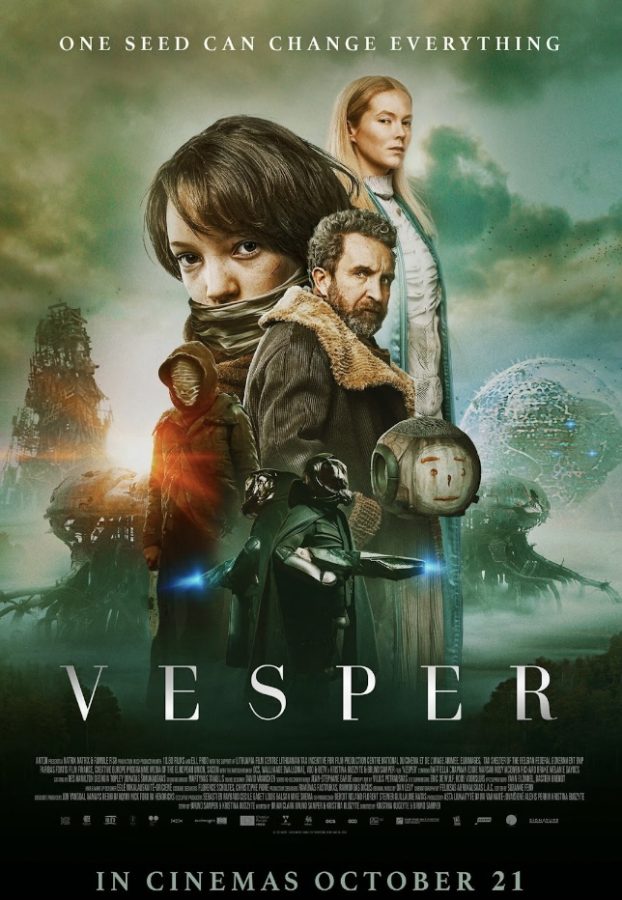Movie Review: Vesper
March 11, 2023
It all starts with a name. Vesper, the movie’s protagonist, could mean evening star or simply nightfall, with interesting etymology in Russian večer and Polish wieczór. Or it could mean nothing at all and just sound exotic, European.
First thing that surprised me was the quality and budget put into the movie. Genre cinema on the Old Continent works well as long as it’s not trying to be Hollywood, and in this case post-apocalyptic, low-tech French-Lithuanian-Belgian film in English works surprisingly well.
Humans outside of Citadels became genetically deformed through inbreeding and as an
aftermath of the catastrophe. Despite clear divide between them, both groups use the figure of
“Other” in the form of synthetically grown humanoid Jugs as indentured property. They appear
twice: One, who serves as an introduction to his species dies to a knife despite suffering not so
serious injury. As it turns out in a plot-twist, the second Jug is Camellia, and her reasoning for
being is a container for human seeds.
While watching, I couldn’t shake the thought that even in the face of disaster, humanity continues to find more ingenious ways to exploit minorities, no matter human or non-human.
Two similar films, in form and content, come to mind the most: Alex Garland’s “Annihilation” (2018) and David Cronneberg’s “The crimes of the future” (2022). While they explore different ideas, all three movies delve into the physical, biological and effective methods as a reflective mirror into our own fears.
I personally am curious about the reflection I’m seeing. I liked the film but I will perfectly understand those who may be turned off by its brutal carnality and the rape metaphors (I counted two). Besides that, “Dune” -ish costumes and a subtle “Cast Away” Wilson reference in the dad-drone as a channel for his voice and mind made it a pleasant experience for me, a cinemagoer with too much time to look at the details and references such as the ones above.
The ending surprised me positively. What could be described as post-apocalyptic Tower of Babel (in contrast to the pre-apocalyptic original) from which probably the last Citadel is visible serves as the scene of last events in the dying world. Vesper takes her keys to the new life, genetically unlocked seeds and in a way “plants the world,” on one hand forgetting and letting go of the trauma she left behind and on the other, remembering Camellia and her father by potentially saving humanity.
Maybe this is some kind of lesson as to how to live within the Climate Catastrophe, the art of
skillful balance between acting and moving on.




































































































































